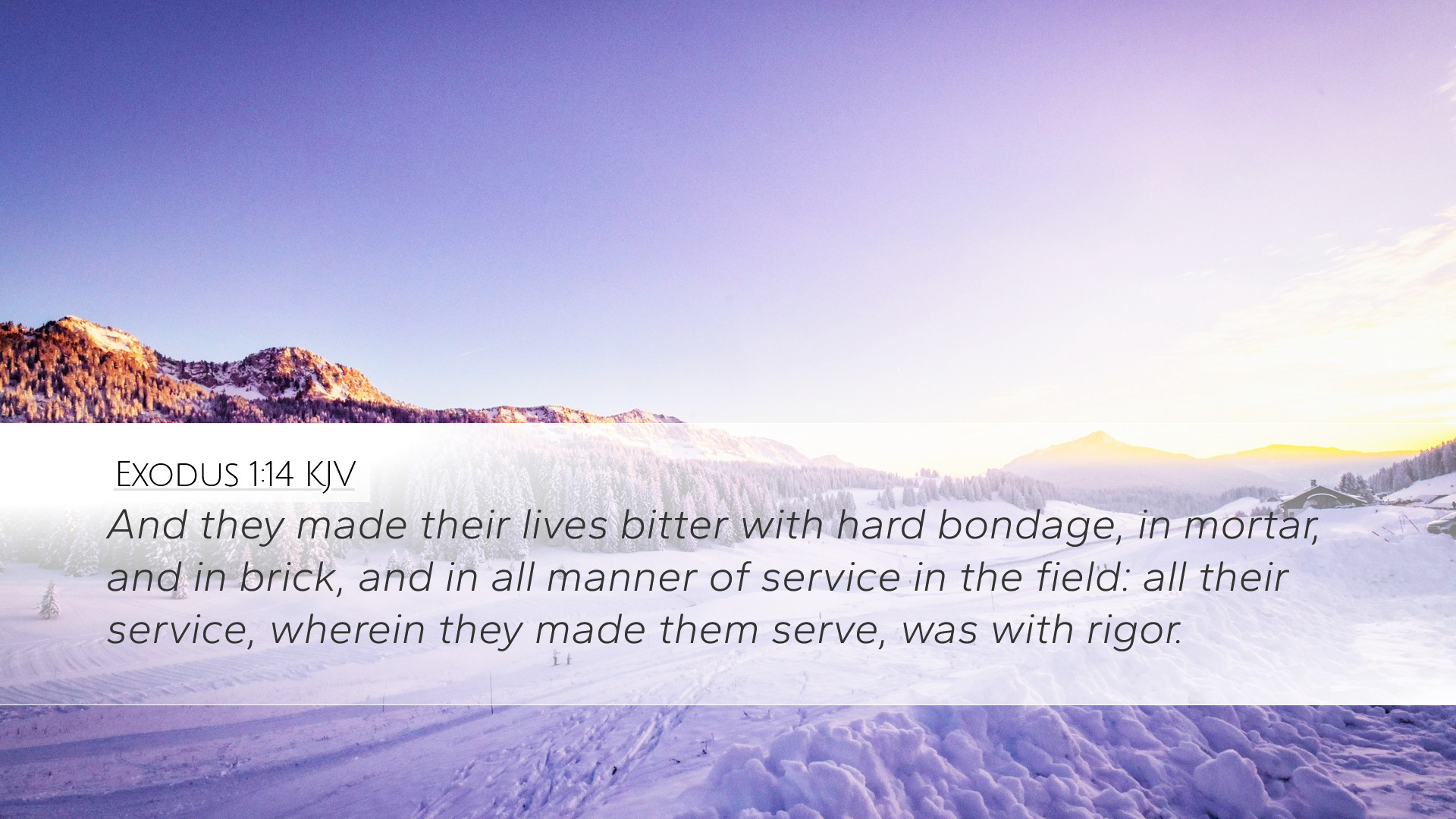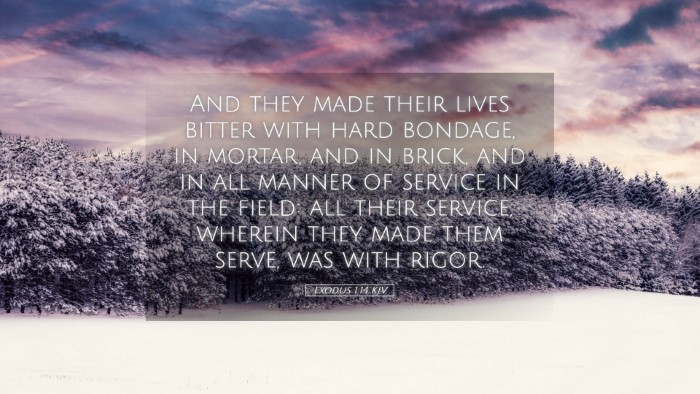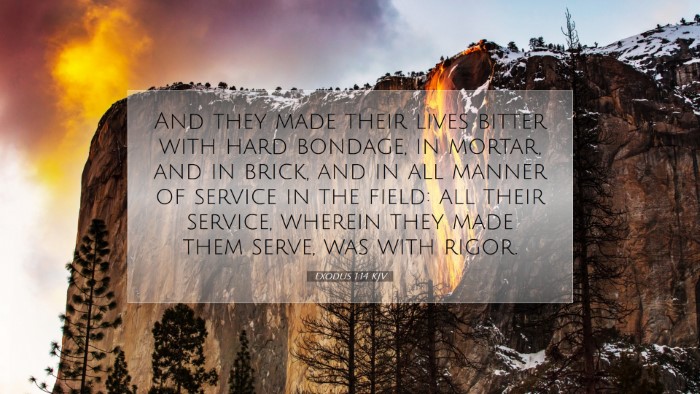Commentary on Exodus 1:14
Exodus 1:14 states: "And they made their lives bitter with hard bondage, in mortar, and in brick, and in all manner of service in the field: all their service, wherein they made them serve, was with rigor." This verse follows the establishment of the Israelites in Egypt, capturing a pivotal moment of transition from favor to oppression. The depth of the suffering experienced by the Israelites serves to illustrate both their physical plight and the broader theological themes of oppression, redemption, and divine intervention.
Historical Context
The Israelites initially arrived in Egypt during a time of favor due to Joseph's position within Pharaoh's court. However, as time progressed, a new king arose who "knew not Joseph" (Exodus 1:8), leading to a systematic oppression of the Israelites. Matthew Henry notes that this shift highlights not only a change in political landscape but also the inherent dangers of being in a land that, while initially hospitable, ultimately turned hostile.
Insights from Commentaries
-
Matthew Henry:
Henry emphasizes the psychological and spiritual ramifications of the Israelites' suffering. The phrase "made their lives bitter" reflects not merely physical hardship but a profound emotional and spiritual distress. This bitterness serves as a foil to the covenant promise of land and prosperity, underscoring the tension between God's promises and present circumstances.
-
Albert Barnes:
Barnes elaborates on the nature of the bondage faced by the Israelites, detailing the various forms of labor they were subjected to. He notes that the "hard bondage" was not only a means of oppression but also a strategy of the Egyptians to prevent the Israelites from growing in number and strength. The rigorous service was multifaceted, impacting physical, emotional, and communal well-being.
-
Adam Clarke:
Clarke provides a deep analysis of the different types of labor the Israelites were forced into, namely "mortar and brick." He suggests that this is emblematic of their building a kingdom that ultimately was not theirs, a reflection of sin and rebellion whereby they were forced to build for another's glory. This imagery serves as a powerful reminder of the cost of servitude and the call to remember one's identity amidst oppression.
Theological Implications
The suffering of the Israelites in Exodus 1:14 raises critical theological questions about the nature of suffering and God’s presence in times of adversity. It draws attention to various themes:
- Oppression and Injustice: The systemic oppression faced by the Israelites serves as a stark reminder of the reality of injustice in the world. This resonates deeply with contemporary issues of human rights and dignity.
- Divine Providence: Despite the severe oppression, the Israelites are ultimately part of God's covenantal people. Their suffering precedes divine intervention and liberation, suggesting that suffering can be a precursor to redemption and greater purpose.
- Empathy and Solidarity: This verse calls believers to stand in solidarity with those who suffer. It emphasizes the importance of empathy in our spiritual journey, reminding us of Christ’s solidarity with humanity in their suffering.
Application for Today
For pastors, students, and theologians, Exodus 1:14 is a profound text that invites reflection on personal and communal suffering, as well as the promise of liberation.
-
Pastoral Application:
Pastors are encouraged to address the theme of suffering within their congregations. Many churchgoers grapple with various burdens, and acknowledging these difficulties can lead to greater community support and healing. Preaching from this text invites discussions on God’s faithfulness amid trials.
-
Academic Reflection:
Scholars might explore the historical implications of forced labor and oppression, analyzing the socio-political environment of ancient Egypt. There is a wealth of comparative literature in liberation theology that can be drawn from this narrative.
-
Community Engagement:
For students and activists, this verse challenges individuals to engage with current societal injustices. There is a call to advocate for those who are oppressed, embodying the spirit of liberation that God ultimately brings to His people.
Conclusion
In conclusion, Exodus 1:14 serves as a powerful narrative surrounding suffering, resilience, and the hope of divine deliverance. Insight from commentaries enrich the understanding of this verse and its relevance. As believers navigate their own experiences of hardship, they can look to the overarching narrative of Exodus – one of bondage leading to freedom – as a beacon of hope and divine faithfulness.


